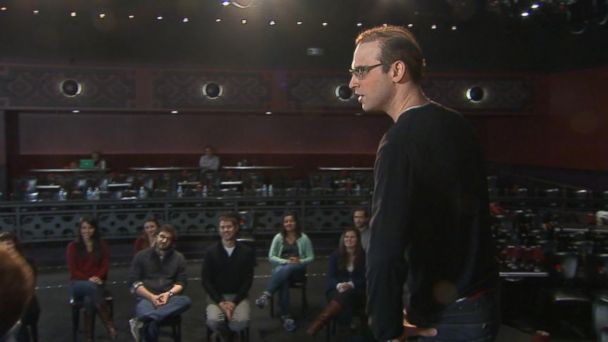3 Tips to Dimming the Lights on Stage Fright

ABC News
ABC News' John Quinones reports:
Hollywood producer and director Michael Bay was giving a presentation on a new gadget during the recent Consumer Electronics Show when suddenly, he froze.
He eventually left the stage. Later, on his website, Bay said he wasn't very good at live events and had been crippled by stage fright.
He's hardly the only one.
The documentary, SPEAK, released in 2012, looks at the fear of public speaking and follows six characters as they prepare for the Toastmasters World Champion of Public Speaking contest.
RELATED: Paul Ryan compares public speaking with bow hunting.
The movie struck a chord with many Americans. Studies show that for decades, Americans have listed public speaking as their No. 1 fear, even before death.
Noah Gordon, 31, lives with stage fright every day.
"It's exhausting thinking about it," said Gordon, who works at a Chicago-based marketing firm. He said the paralyzing phobia affects his work, his relationships and his life. "You have to kinda just wait for things to happen instead of go after them."
When he tries to speak publicly, he said he begins to shake.
"Your brain shuts down, so you just have to stop," Gordon said. "The time leading up to it is what kills you, it's all consuming. …
Experts point to evolution as a reason for why people panic during public speaking events.
Long ago, when many eyes were on a person, chances were that the person was about to be attacked. So today, when people step in front of many eyes, a primal part of the brain thinks "danger."
"We had to either flee or fight, in order to survive," said Priscilla Shanks, a public speaking and media expert who has consulted for ABC News.
Shanks explained why the body reacts the way it does.
Sweat occurs so the body can cool off quickly. Shallow breathing helps oxygen reach the muscles. Adrenaline kicks in to help people fight harder or flee farther.
"None of that works for modern man when he's feeling frightened in a situation," Shanks said, "which is asking him to be cool, calm, collected and connected."
To help him overcome his fear, Gordon in Chicago signed up for a course called "I'd Rather Swim With Sharks."
It's offered by Second City Communications, the strategic business to business arm of the famous Second City Theater that's produced stars like Steve Carrell and Tina Fey.
The course uses workshops to confront the nervousness that envelops people when they have to publicly speak. So what does improv comedy have to do with the fear of public speaking?
"I think that improv comedy is one of the most anxiety-provoking moments that you will ever have," said workshop facilitator and Second City graduate Colleen Murray. "You're essentially agreeing to stand on stage and have no idea what you're going to say."
Improv comedians have a lot of pressure on themselves when they perform and have to use quick coping mechanisms to think on their feet and appear relaxed and at ease.
But if someone doesn't have time to take a course, public speaking experts hailed these rules as the secrets to success.
1. Practice out loud. Record your presentation. Get used to the sound of your own voice.
2. Breathe deeply right before starting. That sends a signal to shut off the fear response.
3. Get right to it. The first 30 seconds are when you're most likely to panic. So ask a question. Get your audience involved.